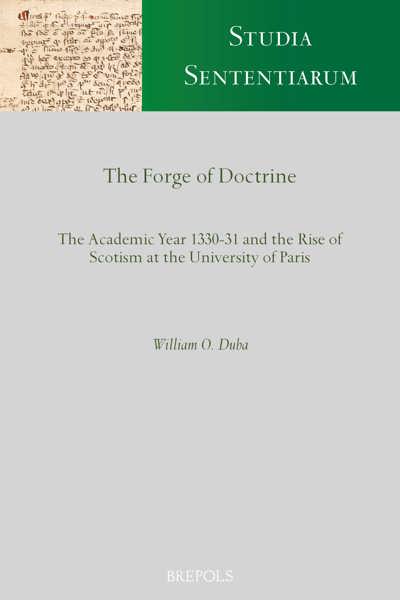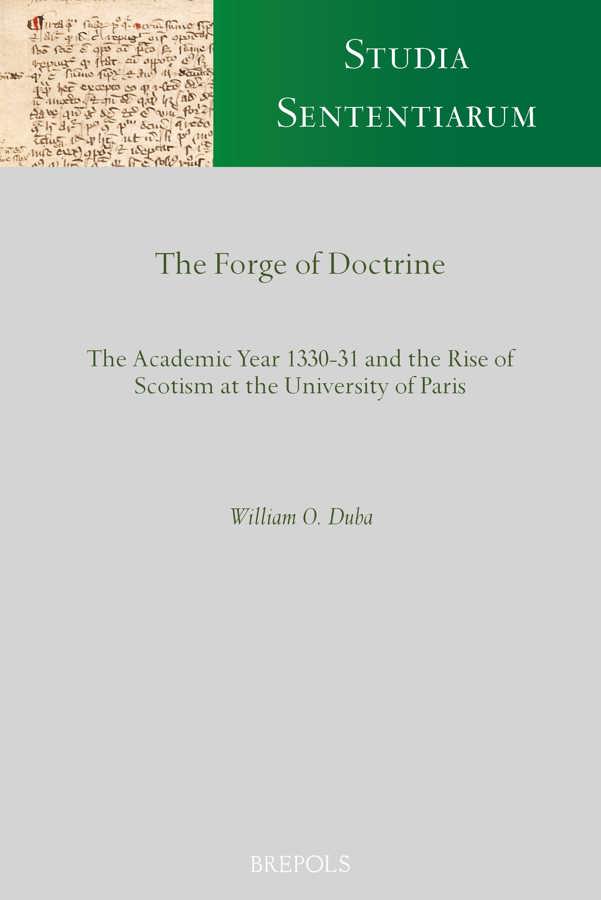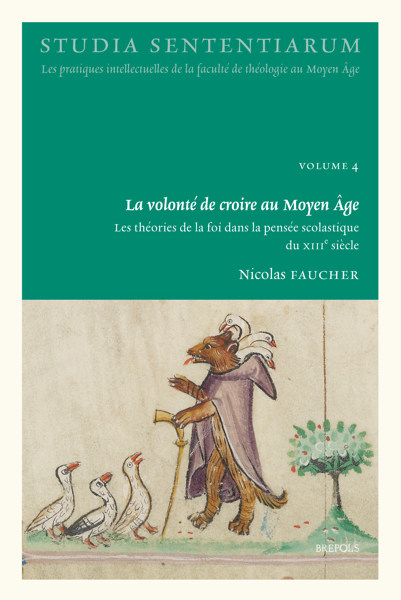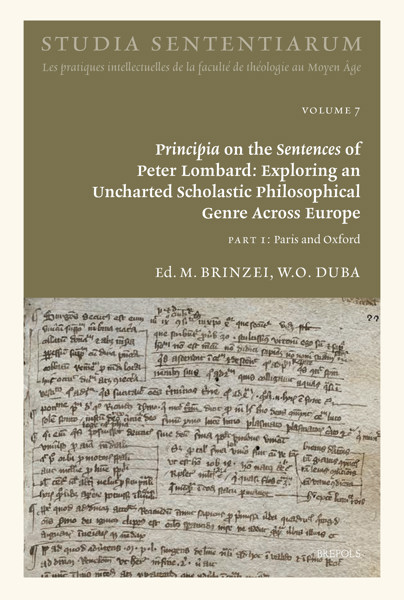
The Forge of Doctrine. The Academic Year 1330-31 and the Rise of Scotism at the University of Paris
William O. Duba
- Pages: 444 p.
- Size:156 x 234 mm
- Illustrations:13 b/w, 20 tables b/w.
- Language(s):English, Latin
- Publication Year:2017
- € 95,00 EXCL. VAT RETAIL PRICE
- ISBN: 978-2-503-57327-4
- Paperback
- Available
- € 95,00 EXCL. VAT RETAIL PRICE
- ISBN: 978-2-503-57332-8
- E-book
- Available
A unique glimpse into the classroom at a critical period in the history of western thought.
“Tous ces matériaux retiendront évidemment l’attention des spécialistes et concourent à faire globalement de cet ouvrage une très utile contribution à l’histoire de la théologie, comme discipline enseignée et comme science, au XIVe siècle. (Jacques Verger, in Francia-Recensio, 2, 2018)
"Der Lebendigkeit des Materials entspricht die Lebendigkeit der Darstellung. Es gelingt William Duba in seiner Studie mustergültig, die Leser in die Welt seines Prager Manuskripts hineinzuziehen und somit in die Debatten an der Pariser Universität. Man muss kein Spezialist sein, um dieses Buch mit Gewinn zu lesen. Ein größeres Kompliment kann man einem so speziellen und forschungsnahen Buch nicht machen. Tauchen Sie mit William of Brienne und William Duba ein in die Welt der mittelalterlichen Universität in der ersten Hälfte des 14. Jahrhunderts! Sie werden dort mehr erfahren und lernen als in vielen Überblickswerken." (Andreas Speer, in Sehepunkte, 6, 2019)
« Le livre de Duba constitue à n’en pas douter un voyage passionnant (…) C’est à l’atmosphère de travail dynamique qui sous-tend cet effort que l’ouvrage, par le grand soin apporté à l’examen de la matérialité du texte comme de son contenu, nous donne un accès privilégié. Plus largement, il démontre, s’il en était encore besoin, l’importance fondamentale que revêt l’examen du commentaire des Sentences, dans toutes ses dimensions et ses évolutions, pour l’historien de la philosophie et de la théologie médiévales. » Nicolas Faucher, dans le Bulletin de Philosophie Médiévale XX, 82/3, p. 658)
“The Forge of Doctrine makes a significant scholarly contribution that no one working on the tradition of the Book of Sentences can afford to ignore” (P. W. Rosemann, dans Scriptorium Bulletin Codicologique, 1, 2018, p. 27)
“The title of William Duba’s masterful volume does not do justice to the content of the work.” (William J. Courtenay, in Church History, p. 860)
William Duba (Ph.D., The University of Iowa, 2006), manages the Fragmentarium project at the Université de Fribourg.
A rare survival provides unmatched access to the medieval classroom. In the academic year 1330-31, the Franciscan theologian, William of Brienne, lectured on Peter Lombard’s Sentences and disputed with the other theologians at the University of Paris. The original, official notes of these lectures and disputes survives in a manuscript codex at the National Library of the Czech Republic, and they constitute the oldest known original record of an entire university course. An analysis of this manuscript reconstructs the daily reality of the University of Paris in the fourteenth century, delineating the pace and organization of instruction within the school and the debates between the schools. The transcription made during William’s lectures and the later modifications and additions reveal how the major vehicle for Scholastic thought, the written Sentences commentary, relates to fourteenth-century teaching. As a teacher and a scholar, William of Brienne was a dedicated follower of the philosophy and theology of John Duns Scotus (+1308). He constructed Scotist doctrine for his students and defended it from his peers. This book shows concretely how scholastic thinkers made, communicated, and debated ideas at the medieval universities. Appendices document the entire process with critical editions of William's academic debates (principia), his promotion speech, and a selection of his lectures and sources.
Introduction: William of Brienne (fl. 1330) and MS Praha, NKCR VIII.F.14
Chapter I: The Prague Codex
Chapter II: Bachelor of the Sentences in Paris
Chapter III: Disputatio Collativa
Chapter IV: Lectiones on the Sentences
Chapter V: William of Brienne’s Scotism in the Lectiones
Chapter VI: After the lectures
Conclusion: The Material Residue of the Transmission of Ideas
Appendices
Appendix A: Guilelmus de Brena, Reportatio in libros Sententiarum. List of Lectiones
Appendix B: Principia in I, II et III Sententiarum
Appendix C: Lectiones 3-4
Appendix D: Lectio 26
Appendix E: . . . Lectio 64
Appendix F: . . . Lectio 71
Appendix G: Principium in theologia
Appendix H: Franciscus de Marchia, IV Sent., Q. 23
Bibliography




